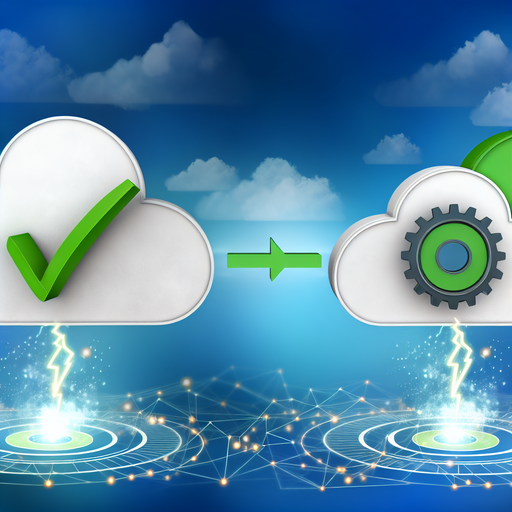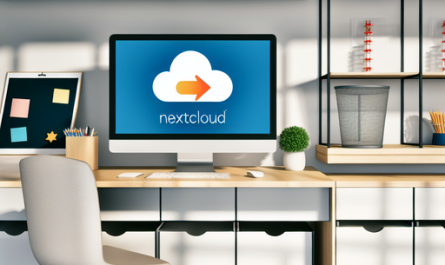Nextcloud and Microsoft Dynamics 365: Revolutionizing Collaboration and Efficiency
In the modern business landscape, data is a critical asset. Effectively managing, storing, and utilizing this data can significantly enhance a company’s productivity and overall performance. Two tools that have become indispensable in many organizations are Nextcloud and Microsoft Dynamics 365. Integrating these two platforms can transform the way businesses operate. This article explores how Nextcloud and Microsoft Dynamics 365 work together to revolutionize collaboration and efficiency.
What is Nextcloud?
Nextcloud is an open-source platform that enables users to store, manage, and share files securely in the cloud. As a self-hosted solution, it gives businesses complete control over their data and ensures enhanced privacy. With features such as file sync and share, calendars, contacts, emails, and project management tools, Nextcloud fosters seamless collaboration within teams.
Get Nextcloud with 1 TB of storage for just up to €3.99 per month.
Try it now for one month free and risk-free.
What is Microsoft Dynamics 365?
Microsoft Dynamics 365 is a suite of cloud-based enterprise resource planning (ERP) and customer relationship management (CRM) applications. It combines various functionalities such as sales, customer service, field service, finance and operations, and human resources, allowing businesses to streamline their operations. Dynamics 365 leverages artificial intelligence and analytics to provide valuable insights, helping organizations make informed decisions.
The Power of Integration: Nextcloud and Microsoft Dynamics 365
While both Nextcloud and Microsoft Dynamics 365 offer substantial benefits on their own, their integration can unlock new levels of productivity and efficiency. Here are some key advantages of integrating Nextcloud with Microsoft Dynamics 365:
1. Enhanced Data Management
Integrating Nextcloud and Microsoft Dynamics 365 allows businesses to effectively manage and organize their data. With Nextcloud’s robust file storage and sharing capabilities, combined with Dynamics 365’s CRM and ERP functionalities, companies can ensure that data is accessible and up-to-date across all departments.
2. Improved Collaboration
Collaboration is crucial for business success. Nextcloud’s collaborative features, such as file sharing, collaborative editing, and project management, combined with Dynamics 365’s communication tools, such as Teams and Outlook integration, facilitate seamless teamwork. Employees can effortlessly collaborate on documents, share updates, and communicate in real-time, regardless of their physical location.
3. Streamlined Workflows
By integrating these two platforms, businesses can automate and streamline various workflows. For example, proposals and contracts created in Dynamics 365 can be securely stored and shared via Nextcloud. Similarly, customer information logged in Dynamics 365 can be easily accessed and updated in Nextcloud, ensuring consistency and reducing manual data entry.
4. Enhanced Security
Data security is a top priority for any organization. Nextcloud offers end-to-end encryption, ensuring that sensitive information remains protected. When integrated with Dynamics 365, businesses can benefit from Microsoft’s advanced security features, such as multi-factor authentication and advanced threat protection. This combination provides a robust security framework for data management.
How to Integrate Nextcloud with Microsoft Dynamics 365
Integrating Nextcloud with Microsoft Dynamics 365 involves several steps. Below is a step-by-step guide to help you seamlessly connect these powerful tools:
Step 1: Install the Nextcloud Application
Begin by installing Nextcloud on your company’s server or using Nextcloud’s cloud hosting services. Ensure that Nextcloud is properly configured and accessible to authorized users within your organization.
Step 2: Implement Microsoft Dynamics 365
Next, set up Microsoft Dynamics 365. This may involve collaborating with Microsoft or a certified partner to ensure the suite of applications is tailored to your business needs. Ensure that all relevant modules, such as sales, customer service, or finance, are properly configured.
Step 3: Choose an Integration Tool
There are various tools and middleware available that facilitate the integration between Nextcloud and Microsoft Dynamics 365. Some popular options include Zapier, Boomi, and Microsoft Power Automate. Select a tool that best suits your business requirements and has support for both platforms.
Step 4: Configure Data Syncing and Automation
Using the chosen integration tool, configure data syncing and automation workflows between Nextcloud and Microsoft Dynamics 365. Set up triggers and actions, such as syncing customer data, sharing documents, or updating project statuses, to ensure both platforms remain in sync.
Step 5: Test and Monitor
Before fully deploying the integration, thoroughly test the workflows to ensure they operate as expected. Monitor the integration regularly to address any issues that may arise and to optimize performance.
Use Cases of Nextcloud and Microsoft Dynamics 365 Integration
To further illustrate the benefits, let’s explore a few practical use cases of integrating Nextcloud with Microsoft Dynamics 365:
1. Sales Process Optimization
A sales team can significantly benefit from the integration of Nextcloud and Dynamics 365. Sales representatives can access customer documents, such as proposals and contracts, stored in Nextcloud directly from Dynamics 365. Updates to these documents can be automatically synchronized, ensuring that the latest information is always available. This streamlines the sales process, reduces manual data entry, and allows the sales team to focus on closing deals.
2. Project Management
Project managers can use Nextcloud for document management and file sharing, while leveraging Dynamics 365 for project tracking and collaboration. For instance, project milestones and tasks recorded in Dynamics 365 can be linked to relevant files and documentation stored in Nextcloud. Team members can collaborate on documents in real-time, update project statuses, and easily access critical project information, regardless of their physical location.
3. Customer Service Enhancement
Customer service representatives can access customer information, interaction history, and support documentation stored in Nextcloud directly from Dynamics 365. This allows for faster and more informed responses to customer inquiries. Additionally, customer support tickets generated in Dynamics 365 can be linked to related documentation in Nextcloud, providing a comprehensive view of customer interactions.
4. Human Resource Management
HR departments can streamline their processes by integrating Nextcloud and Dynamics 365. Employee records, contracts, and performance reviews stored in Nextcloud can be easily accessed and updated from Dynamics 365. This integration simplifies HR workflows, such as onboarding, performance evaluations, and employee data management, ensuring consistency and accuracy.
Conclusion
Integrating Nextcloud with Microsoft Dynamics 365 can revolutionize the way businesses operate by enhancing data management, improving collaboration, streamlining workflows, and ensuring data security. By leveraging the combined power of these platforms, organizations can boost productivity, make informed decisions, and ultimately achieve their business objectives.
As data continues to play a pivotal role in business success, it is crucial to leverage tools and technologies that enable seamless data management and collaboration. Nextcloud and Microsoft Dynamics 365 offer a powerful combination that can transform the way businesses operate, paving the way for a more efficient, collaborative, and secure future.
To get started, follow the integration steps outlined in this article, choose the right tools and middleware, and explore the various use cases to tailor the integration to your business needs. The future of efficient data management and collaboration awaits with Nextcloud and Microsoft Dynamics 365.

